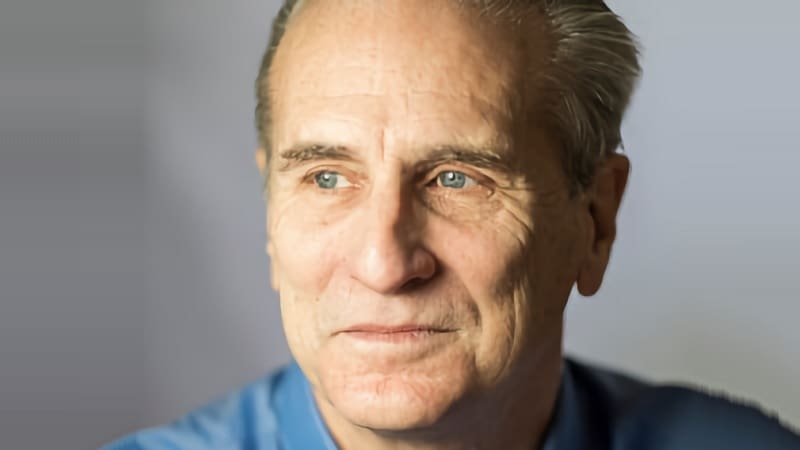Edwin Warfield is the publisher of citybiz.co which he founded as a local business digital news platform in 2004. Since 2014, he has conducted over 1,000 interviews of entrepreneurs, visionaries, digital disruptors, angels, venture capitalists, social innovators, and CEOs – https://www.citybiz.co/type/interviews/
From 1994 to 2002, Warfield was the founder of the Local Business Network. The company raised over $20 million from Bruce Wasserstein’s private equity firm U.S. Equity Partners, Times Mirror, RS Investments, and Rustic Canyon Partners. Partnerships included Cox Communications, Tribune, Digital Cities, City Search, Hoovers, The Deal, Bankrate, and Netscape. The company merged with True Advantage in 2001 before its divestiture and restructuring in 2002.
Publisher of The Daily Record from 1983 to 1994, Warfield transformed the moribund public notice newspaper into a local daily business newspaper. He launched an award-winning business magazine Warfields. In 1990, he orchestrated a $2 million buyout of shareholders with investment banking advice from Veronis, Suhler & Associates, and financing from Maryland National Bank. In 1994, Warfield sold The Daily Record to Dolan Media.
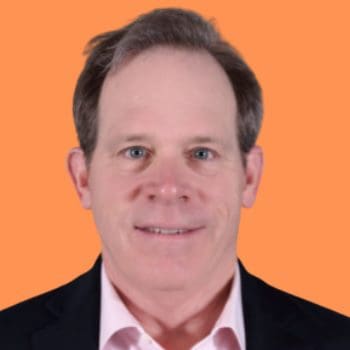 Bill Atkinson launched Atkinson Strategic Communications in January 2020 after 15 years in the public relations business and 21 years as a newspaper reporter. Clients include, Coca-Cola Consolidated, the largest bottler of Coca-Cola products in the country, the American Beverage Association, FLUIDDA, a Belgium-based medical company that is the world leader in Functional Respiratory Imaging, and Think Systems, a Baltimore-based management consulting firm.
Bill Atkinson launched Atkinson Strategic Communications in January 2020 after 15 years in the public relations business and 21 years as a newspaper reporter. Clients include, Coca-Cola Consolidated, the largest bottler of Coca-Cola products in the country, the American Beverage Association, FLUIDDA, a Belgium-based medical company that is the world leader in Functional Respiratory Imaging, and Think Systems, a Baltimore-based management consulting firm.
Prior to starting his own firm, Atkinson was a partner in 212 Communications, which he joined in June 2015, and focused on strategic and crisis communications, media relations and grassroots strategies. Before that he was a senior vice president at global public relations agency Weber Shandwick. At Weber’s Baltimore office Atkinson specialized in strategic and crisis communications as well as reputation management. Clients included Constellation Energy, Honeywell, General Motors, Bank of America, Promontory Financial Group and 1st Mariner Bank.
Interview Questions:
Bill Atkinson: You have interviewed hundreds if not thousands of CEOs during your career as an editor and reporter. As a keen observer, what are the key traits you see in a great CEO?
Edwin | There are certain traits that are obvious – vision, grit, courage, decisiveness, self-confidence to name a few- Forbes Article – “If You Want To Be ‘CEO Material,’ Develop These 15 Traits“. However, great leaders straddle between two opposing forces – patience and impatience, communicating and listening, transparency and opacity, vulnerability, and self-confidence, … Great leadership requires an understanding of the balance/the equilibriums/calibrations.
Bill Atkinson: Who are some people who have impressed you along the way?
Edwin |It is impossible to choose my favorite people that I have interviewed but here are some stories that resonated.
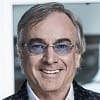 Daniel Lamarre, Vice Chairman of Cirque du Soleil
Daniel Lamarre, Vice Chairman of Cirque du Soleil
Daniel chronicles Cirque Du Soleil’s amazing journey from a group of Montreal street performers to partnerships with The Beatles, James Cameron, and Disney, crashing from a billion in annual revenue to 0 during Covid. An amazing roller coaster of a story.
Amy King is the CEO of Pallet a small home builder that is a social purpose company; she is committed to “fighting homelessness at scale.”
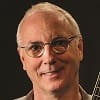 Paul Reed Smith, CEO of PRS Guitars
Paul Reed Smith, CEO of PRS Guitars
A boy from Bowie, Maryland turns his guitar company into what he described as an American dream. Paul shares how he hustled to build guitars for Carlos Santana. story – 11:40 A company built of passion.
2B. New Question – Are there any interviews that reflect your personal interest? There are a number of interviews that reflect personal interests and challenges.
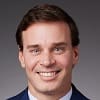 Greg Hobelmann, Co-CEO Ashley Addiction Treatment
Greg Hobelmann, Co-CEO Ashley Addiction Treatment
Alcohol played a destructive role in my father’s life until he went to rehab at Father Martin’s Ashley House now called Ashley Addiction Treatment. Father Martin’s impact on my father’s life was redemptive/transformative.
Cleerly is using AI and image analysis to help prevent heart attacks. 50% of people who suffer a heart attack will do so without experiencing any symptoms I have had three heart-related incidents – a stroke, an aorta bypass, and TIA that sent me to the ICU.
One of my heart stories is chronicled in an excerpt.
Stephen Willard is the CEO of NRX which produces oral NMDA investigational medicine focused on bipolar depression in patients with acute and sub-acute suicidality. In 2106, I was diagnosed with bipolar. One of our missions for citybiz is to highlight important initiatives in mental health
Bill Atkinson: Many of the leaders I covered presided over the sale of their companies: Baldwin/Mercantile, Bramble/Allfirst, Krongard/Alex. Brown, Norm Blake/USF&G, Mary Ann Scully/Howard Bank. What is the job of a CEO? Is it simply to grow a company and sell out?
Edwin | All of the examples that you have referenced were highly compensated managers; they were not founders, entrepreneurs, or visionaries. Their commitment was to their compensation, not the community. Their primary incentives were an exit or liquidity event. Regional bank mergers are inevitable; regrettably, the Baltimore banks were the acquired, not the acquirer. Mercantile could have become a national bank. The only legacy that remains from that group is the successor to Alex. Brown & Son, Brown Advisory whose commitment to Baltimore and Maryland is exemplary.
Bill Atkinson: Give us examples of CEOs who you see doing a good job: building their business, beating the competition, creating a niche, or winning in the face of adversity.
There are two Baltimore examples that I would like to share.
The brainchild of Michael Rosenbaum, this Rise of the Rest portfolio company uses AI to discover high-potential talent and develop and deploy them into client companies. It is important in the context of the challenges facing Baltimore’s ability to provide jobs.
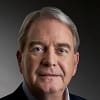 Stephen Bisbee, CEO of eOriginal
Stephen Bisbee, CEO of eOriginal
The eOriginal saga is a 24-year journey of a digital mortgage startup that pivoted, crashed, almost burned, and finally achieved an exit; it is a testament to Stephen Bisbee’s vision and fortitude.
These are just a few examples
Bill Atkinson: One of the key traits of any great CEO is being a good leader. What does it mean to be a good leader?
Great leaders have some important formative experience. For the greatest generation, it was World War II and military training and ethos. On entrepreneurial leadership, 44 percent, or 223 companies, in the Fortune 500 were founded by immigrants or their children. Opportunity by itself can create leadership.
To quote Mark Twain, “The really great (people) make you feel that you too can be great.” That is true of leaders.
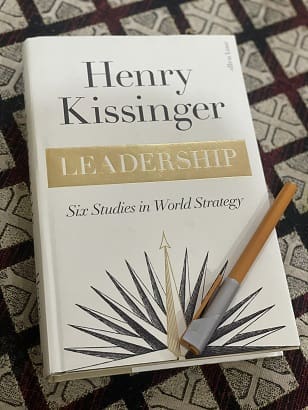
Bill Atkinson: You mentioned that you are reading Henry Kissinger’s book Leadership. What have you taken away from the book? What does Kissinger say about leadership?
He tells the stories of 6 political leaders, Konrad Adenauer, Charles de Gaulle, Richard Nixon, Anwar Sadat, Lee Kuan Yew, and Margaret Thatcher. He frames their stories in the context of strategies. For Konrad Adenauer, it was a ‘strategy of humility” that provides the foundation for resurrecting post-World War II Germany. He goes on to discuss the strategy of will (Charles de Gaulle), transcendence (Anwar Sadat), equilibrium (Richard Nixon), excellence (Lee Kuan Yew), conviction (Margaret Thatcher)
Bill Atkinson: Your family history runs deep in Maryland, in business and politics. What stories can you share that demonstrate their leadership during pivotal times?
One of my favorite examples was an obituary by The Baltimore Sun reporter Michael Olesker of my father who was Adjutant General of Maryland during the riots at the University of Maryland; the headline “During Vietnam protests, Warfield showed compassion.” With the deaths of Kent State as part of the backdrop, Dad quelled the potentially disastrous confrontation with what Olesker witnessed as compassion.
I have shared Michael Olesker’s column.
Bill Atkinson: As CEO of your own company, what is the biggest lesson you have learned about being a CEO?
Keep reading. biographies, business stories, history, strategy…
 Most importantly, great leaders are inspired by the lessons garnered by other great leaders; great leaders read about Lincoln, FDR, Churchill, and Gandhi.
Most importantly, great leaders are inspired by the lessons garnered by other great leaders; great leaders read about Lincoln, FDR, Churchill, and Gandhi.
Always keep my bipolar friend Mark Twain nearby –
I try never to let my schooling get in the way of my education. – Mark Twain
Here are my recent favorites:
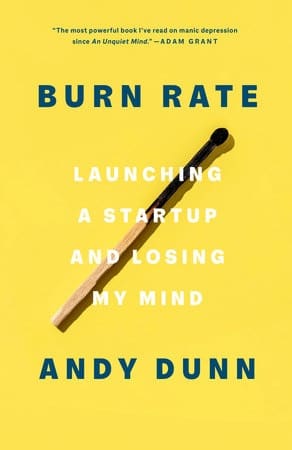
Burn Rate – Launching a Startup and Losing Your Mind- Andy Dunn
In this “gripping” (TechCrunch), “eye-opening” (Gayle King, Oprah Daily) memoir of mental illness and entrepreneurship, the co-founder of the menswear startup Bonobos opens up about the struggle with bipolar disorder that nearly cost him everything.
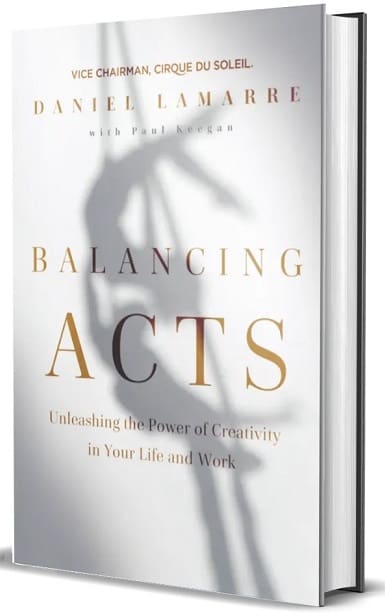
Balancing Acts – Unleashing the Power of Creativity in Your Life and Work – Daniel Lamarre
Cirque du Soleil Executive Vice-Chairman Daniel Lamarre shares what it takes for anyone, regardless of position or industry, to embrace the value of creative leadership.
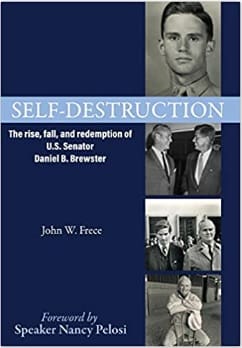 Self-Destruction – The Rise Fall, and Redemption of U.S. Senator Daniel B. Brewster J Kohn W. Freece
Self-Destruction – The Rise Fall, and Redemption of U.S. Senator Daniel B. Brewster J Kohn W. Freece
Hollywood-handsome Daniel B. Brewster had it all: inherited wealth, stellar education, combat Marine, prestigious horse farm, gorgeous and talented wife, and two young sons — even a seat in the United States Senate. He was called “the Golden Boy of Maryland Politics.” In 1964, as a stand-in for Lyndon Johnson in Maryland’s Democratic Presidential Primary, Brewster defeated the segregationist George C. Wallace, a victory that was credited with clearing the way for congressional passage of the landmark Civil Rights Act of 1964.
But then, debilitated by alcoholism, Brewster self-destructed. He lost it all — a breathtaking descent into divorce, electoral defeat, a bribery scandal, financial collapse, and personal shame.
Connect with Edwin and Bill on LinkedIn
![]() Citybiz.co is a local business news, networking, posting and employment email and website presently in 20 cities: Boston, New York, Philadelphia, Baltimore, Washington, Charlotte/Raleigh, Atlanta, South Florida, Dallas and Houston, Detroit , Chicago, Indianapolis, Denver, Phoenix, San Diego, Los Angeles, San Francisco, Portland and Seattle.
Citybiz.co is a local business news, networking, posting and employment email and website presently in 20 cities: Boston, New York, Philadelphia, Baltimore, Washington, Charlotte/Raleigh, Atlanta, South Florida, Dallas and Houston, Detroit , Chicago, Indianapolis, Denver, Phoenix, San Diego, Los Angeles, San Francisco, Portland and Seattle.
